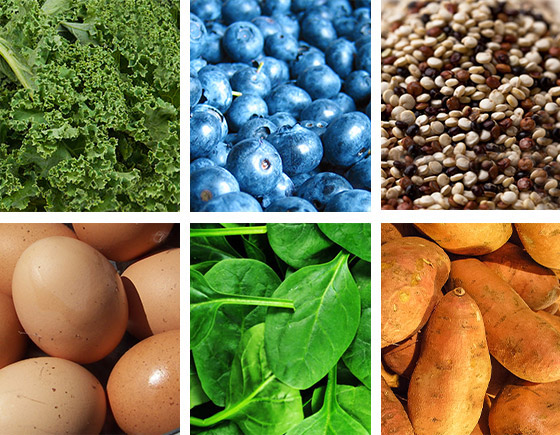Blog
Food to beat the blues
 What we eat can have a significant impact on how we feel and function – physically, mentally, emotionally.
What we eat can have a significant impact on how we feel and function – physically, mentally, emotionally.
A diet rich in heavily processed, refined sugars and grains and deep fried foods (a.k.a. the Western Diet) can contribute to weight gain, metabolic syndrome, heart disease, cognitive decline, and inflammatory autoimmune diseases.1-2
And what we eat can also impact our mood.
In good news, a new preliminary study from Deakin University has found that eating a real food, Mediterranean style diet can help fight the debilitating impact of depression.
The study
Over 12 weeks, 67 participants diagnosed with major depressive disorder were split into a control and diet intervention group. The control group undertook a social support protocol. The protocol schedule and length of intervention was mirrored in the diet-intervention group, who worked with a clinical dietician.3
Between baseline and the 12-week endpoint, the diet-intervention group experienced significantly improved symptoms compared with the control – three times more! This was independent of weight loss or exercise.
To be diagnosed with major depressive disorder an individual will experience low mood, energy, interest and enjoyment most days for at least two weeks. It can manifest also in anxiety, impede on everyday function at home, work, or school, and affect how one interacts with others.
It is not a great place to be. But it is encouraging to know that what we choose to eat may help improve symptoms.
So, what did the study participants eat?
The intervention diet was based on a whole-food Mediterranean diet, with the aim to improve dietary quality.
Participants could enjoy veg, fruit, nuts, legumes, olive oil, and whole grains, and some fish, poultry, lean red meat, eggs, dairy and a glass or two of red wine with dinner.
Importantly, the intervention prescribed a low intake of sugar and refined grain products like pasta. Participants were limited to no more than 3 servings per week for sweets, refined cereal, and soft drink, as well as fried and fast food.
An interesting and added bonus: the researchers found eating this way was more affordable than they anticipated, averaging at $112 AUD per person per week.
The important takeaway – in order to support health, the majority of the food we eat should be of high quality. This means nutrient-dense, whole and minimally processed food.
Why food and mood?
Study author Professor Felice Jacka believes the positive outcomes may be due to diet’s effect on depression risk factors.
“The immune system, brain plasticity, and gut microbiota seem to be central not just to our physical health, but also our mental health,” she says. “And diet, of course, is the main factor that affects the gut microbiota.”
What we eat can influence our mood and our intestinal microbial populations, and this relationship is one of continued investigation within the scientific community.
It is important to note that any treatment – such as medication or psychotherapy – being undertaken by the participants continued throughout the trial, and that diet can support existing treatment.
So, if you are considering using food as medicine to address depression or depressive symptoms, be sure to chat to your healthcare practitioner before reducing or ceasing other treatment, and seek advice from a qualified dietician or nutritionist to guide you on your way.
Ultimately, what we eat can have a profound impact on our health and the quality of our everyday lives. And the less of the processed, packaged stuff, the better. As we love to say here at That Sugar, just eat real food.
By Angela Johnson (BHSc Nut. Med.)
Please note: If you are concerned that you or someone close to you may be suffering from depression, please do not hesitate to reach out to one of the many support services available, such as Beyond Blue or Lifeline in Australia.
References:
- Lustig, RH 2015, ‘Metabolic Syndrome and the ‘Western Diet’: Science and Politics’, Pediatric and Adolescent Medicine, 19, pp. 137-147.
- Manzel, A, Muller, DN, Hafler, DA, Erdman, SE, Linker, RA, & Kleinewietfeld, M 2014, ‘Role of “Western diet” in inflammatory autoimmune diseases’, Current Allergy And Asthma Reports, vol. 14, no. 1, p. 404.
- Jacka, F et. al 2017, ‘A randomised controlled trial of dietary improvement for adults with major depression (the `SMILES’ trial)’, BMC Medicine, 15, no. 1, pp. 23.












